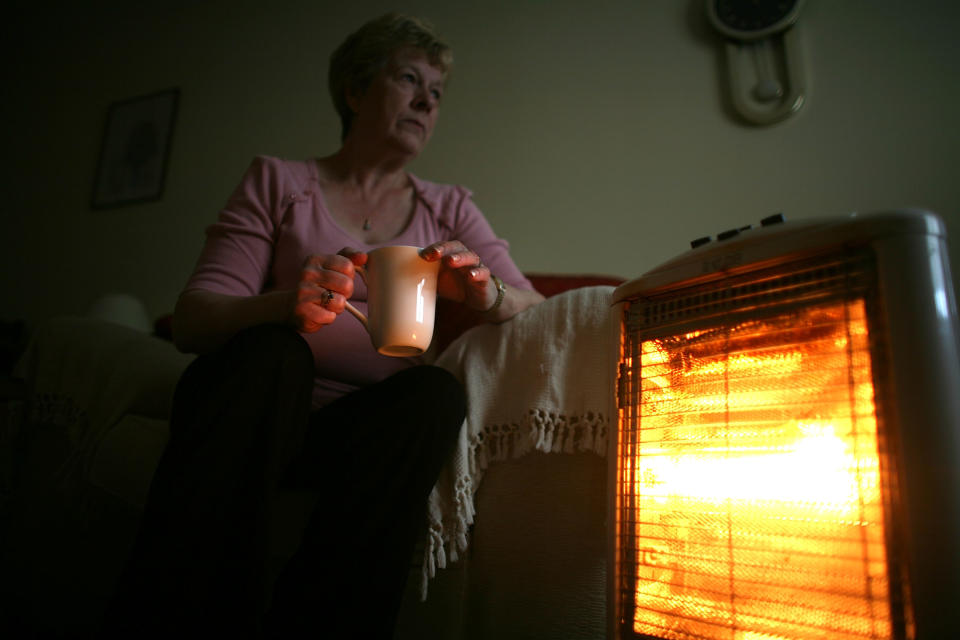Pension time-bomb: How to make the most of your savings

Shocking statistics published by the City Watchdog today reveal that 15million people aren’t saving for their retirement.
The Financial Conduct Authority said a third of workers don’t pay into a pension.
FCA chief Andrew Bailey warned: “While the state pension is a hugely important part of retirement provision, for many people it is not enough to maintain living standards.”
MORE: We’re just 11 years away from a pensions crisis
The warning is clear: fail to act and you could be facing penury in retirement.
How to make the most of your pension planning
Saving for retirement is very important but it isn’t easy for those who have to make ends meet today.
But people also don’t understand the importance of saving for their future.
Statistics suggest that around half of today’s 55 to 64-year-olds are likely to live to the age of 90.
But the FCA research shows that only 7% of them expect to live to that age and consequently don’t prepare for the eventuality.
MORE: HMRC scam: 85-year-old left shaken after crook threatens arrest
The net result could be a lot of pensioner poverty rather than millions enjoying a care-free retirement.
Who’s most at risk? Anyone self-employed is twice as likely as an employee to have no retirement savings, while an unemployed person is three times as likely.
What should you do?
“If you’re not in a work-place pension and you are eligible to join one, then do so because you’ll get free money from your employer and the government,” advises Hargreaves Lansdown’s head of pensions research Tom McPhail.
“If you aren’t eligible then look at setting up your own pension; you can start saving from as little as £5 a week.”
If you want a simple no-frills pension to get you started, you can join NEST, the government backed scheme set up to help employers with their auto-enrolment duties, he says.
If you want something that gives you more choice and control, then look at using a low-cost Self Invested Personal Pension (SIPP).
How can you ensure your finances stay on track for retirement?
“With increasing longevity many people can expect to live long beyond their 70s and so it is important that you plan with this in mind,” Chase de Vere’s Patrick Connolly says. “If you start long-term planning in your 20s and 30s, you will be very grateful as you are likely to benefit from a more comfortable standard of living in retirement.”
Here are his tips to keep your finances on track, depending on your age…
If you’re in your 20s

You’re likely to be more focused on paying off debts rather than longer-term savings and investments.
Start with credit cards which have the highest interest charges. But look to build cash savings to cater for any short-term emergencies.
If you’re looking to get on the property ladder think about investing in a Lifetime ISA.
MORE: Debt trap: when you should worry and how to control your spending
Join a company pension scheme if you have access to one. You may not be able to afford to make large contributions at this stage but it is important to get started.
If you’re in your 30s
You’re likely to still be focused on short-term financial priorities, such as buying a house, paying off debt, getting married and starting a family rather than longer-term savings and investments.
Bear in mind that your financial situation will change after children are born as costs will increase and earnings may go down, especially if one partner reduces their hours or stops working
However, you should be making a conscious effort to invest and continue to save into any company pension scheme while increasing contributions with any salary rises.
If you’re in your 40s
You should have higher earnings which will hopefully give scope to increase contributions to longer-term financial planning priorities.
It is increasingly important to review how much you are saving for retirement and what you are likely to get in return.
MORE: Hammond plans ‘Budget giveaway to the young’ in tax threat to older workers
For most people the best approach for long term investments is a combination of ISAs and pensions. If you are a higher rate income tax payer then you might favour the tax advantages of pensions although if you want the flexibility of being able to access your money whenever you wish then ISAs are likely to be preferable.
However pensions are likely to be a better option for higher earners who can currently benefit from 40% or 45% initial tax relief on their contributions.
If you’re in your 50s
You’re likely to be at or approaching your maximum earnings. Meanwhile costs may be reducing with children, even if they are still living at home, likely to be costing less and hopefully starting to earn for themselves. Mortgage costs should also be reducing.
Your financial planning focus should be predominantly on saving for retirement and maximising pension investments where possible.
MORE: Around 775,000 people pay more tax than millionaires – are you one of them?
You should have a good idea when you are likely to retire and how you will take your pension benefits.
If you’re in your 60s
You’re still likely to be working but costs should have reduced further with children having grown up and mortgages hopefully paid off.
Your focus should be on retirement planning and ensuring that everything is on track to give the required standard of living in retirement.
Your pensions and ISAs should be working in tandem, with the mix between the two depending on your working situation and short and medium-term goals.
If you’re in your 70s
You should be focused on generating income to provide a comfortable standard of living for the rest of your lives.
Whether you take income from your pensions or ISAs is likely to depend on your tax position and on factors such as estate planning, as ISA income is tax-free but money within a pension is free from inheritance tax.
Estate planning means working out how you can leave assets to future generations. It could be that it is more tax efficient to draw income from savings accounts or ISAs, and to leave pension investments untouched.

 Yahoo Finance
Yahoo Finance 
